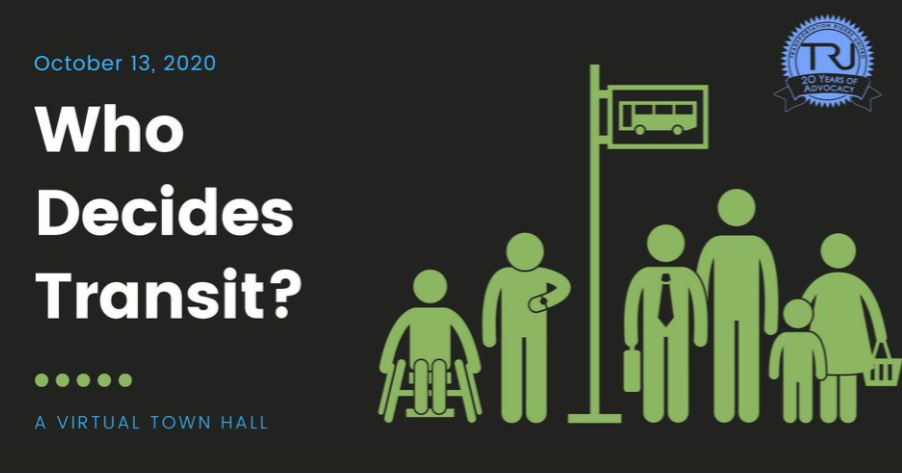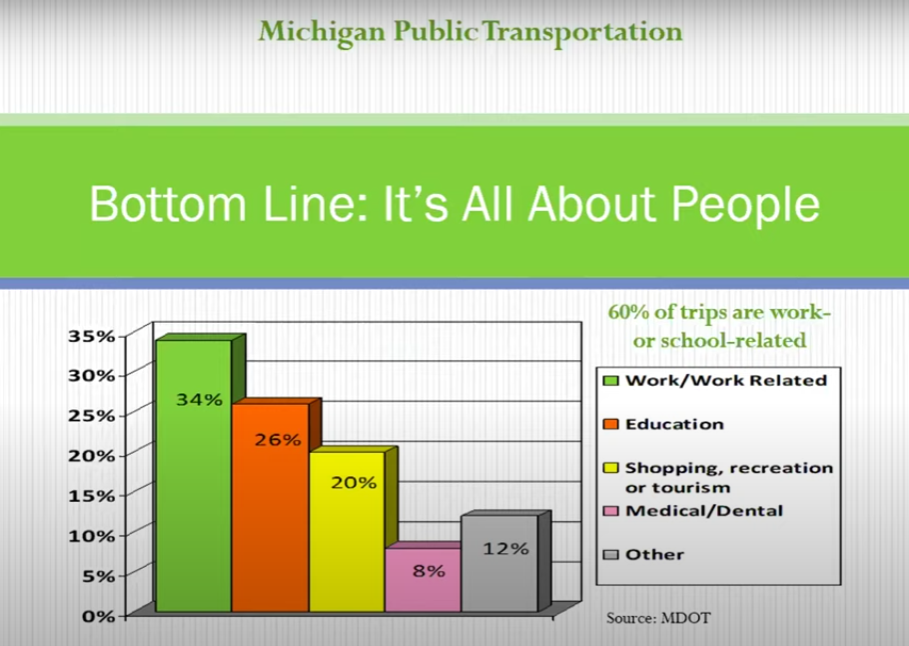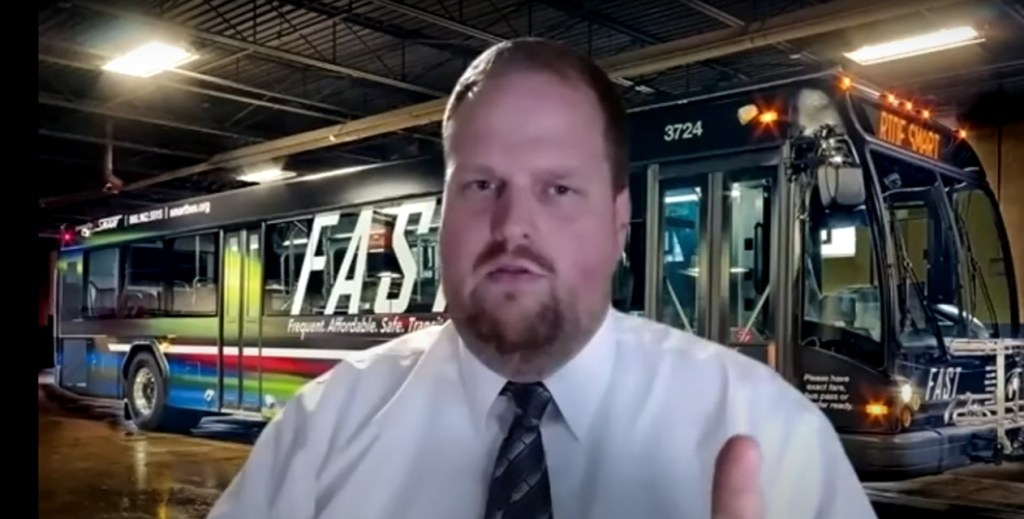
Watch the Full Town Hall Event on Youtube Now
Funding public transportation is a detailed political process most are unaware of. Accordingly, TRU held it’s third Virtual Town Hall this past Tuesday, “Who Decides Transit?”. The town hall attempted to unpack the various moving components of transit policy decision-making. Attendees heard from three policy experts who each spoke on the role of federal, state, and local governments, respectively.
The town hall began with Chris Rall from Transportation for America, a national transit advocacy group. Rall elaborated on how Transportation for America values “outcomes over funding”, and believes that federal budgets should examine transportation as not just ‘the bus’, but as a holistic system.

Chris Rall, Transportation for America
“Transit does not exist in a vacuum. We must look at how roads, land use, and all transportation systems affect funding [streams]”
Rall also warned against the “80/20 split”, a federal budgetary practice that earmarks only 20% of federal funds for transportation development. Following Rall, Transit Director at Saginaw Transit Authority Glenn Steffens also emphasized overcoming the 80/20 split in federal budgets. “It is a myth that public transit is largely state funded” Steffens began.
Although he did go into detail about how state funds are allocated from federal budgets, Steffens ultimately concluded that people, not numbers, are at the core of transit decision-making. People drive demand, and influence how funds are allocated.

“All the formulas are the same, and at the end of the day, it’s all about people. When you look at transit funding, and which communities connect and which don’t…you see these consistent fights”
Glenn Steffens, Saginaw Transit Authority
Finally, SMART Deputy General Manager Robert Cramer brought the conversation back to metro Detroit and the budgetary restrictions created by “opt-in” and “opt-out” communities. For SMART, local funding from opt-in communities is essential for operation.
Cramer also explained that despite the interconnectedness between federal, state, and local transit funding, advocating for transit in your community remains difficult. “There are very few tools to support transit in Michigan” Cramer admitted when replying to an audience comment.

“65% of SMART’s operating budget is covered by local funding of opt-in communities. And without local funding, SMART is unable to leverage state funding”
Robert Cramer, SMART
In all, “Who Decides Transit?” demonstrated that there are many stakeholders in transit decision-making, and that the processes are not common knowledge. By creating some transparency, TRU hopes more individuals will be inspired to get involved in the fight for better transit.
